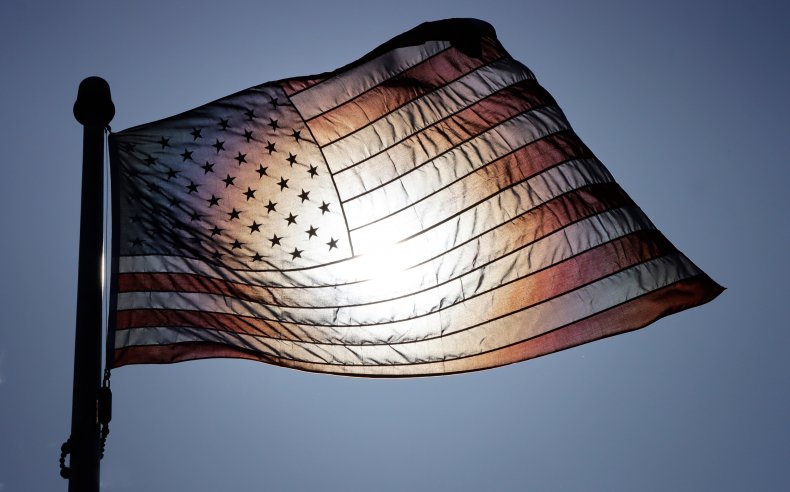Stronger Together, But How? | Opinion
The killing of George Floyd was the flashpoint for a resurgent racial justice movement and the ascent of Black Lives Matter, founded eight years ago by three women. While it has been heartening to see people of all races demonstrating together, the horror of that moment on May 25, 2020, has led many to ask, "Can a divided America ever bring about a more just society for Black men and women, and for other marginalized people in our increasingly diverse society?"
This is not a new question. As a young housewife in the South of the 1960s, I joined the Odessa, Texas branch of the Panel of American Women. I was asked to share my personal story with fellow Texans who had never met a Jewish woman. Some of them actually still inquired if we had horns, and most considered us a distinct race.
The Panel, as the national organization was known, was the brainchild of Esther Swirk Brown, a Missouri-born woman who believed the country could heal its racial and economic wounds by having young married women—Black people, white people, Latinas, Asians, Christians and Jews—talk to each other about our lives: how our family heritages influenced us, where our children went to school, what our religious practices meant to us, what it meant to be who we were. Despite the imminent dismantling of Jim Crow laws by the Civil Rights Act of 1964 and the Voting Rights Act of 1965, most of the white and Black women on Panels across the country had never been inside each other's homes, much less had intimate conversations.
Sometimes we were reticent to speak, but as we mustered the courage to take small steps forward, the Panel's consciousness raising expanded our hearts and minds. We spoke to religious groups and civic organizations, such as then all-male Rotary Clubs. It may sound quaint, but we wanted to show that, well, people are people no matter their background.
Intimate human communication has value in fostering tolerance. But now it is clear that by focusing simply on tolerance, we failed to address systemic racism, white supremacy, or the patriarchal power structure at the root of our institutions, including education, housing and finance, to name a few. The American melting pot was still the prevailing metaphor. Ostensibly, as each of our "minority" groups was assimilated into society (meaning becoming like the white, Anglo Saxon and largely Protestant society), we would ride into the sunset holding hands.
Fast-forward to 2014 when I co-founded Take The Lead, an organization that teaches women how to achieve their fair and equal share of leadership positions across all sectors. For the Take The Lead team, I intentionally sought out women from different racial, cultural and professional milieus to further our mission of gender parity, people who understand how intersectionality—the interlocking systems of race, class and gender—shapes our lives and our opportunities for leadership. Racism, sexism, homophobia, antisemitism—you name it—are joined at the head. All stem from a deliberate systemic power imbalance designed to keep certain groups powerless. And we can't solve the problem for one group without solving it for all of us.

As scholar Kimberlé Crenshaw said: "When feminism does not explicitly oppose racism, and when anti-racism does not incorporate opposition to patriarchy, race and gender politics often end up being antagonistic to each other and both interests lose." This is exactly why we must join the struggle together to move beyond mere tolerance to systemic change, from wherever we might have sat on that Panel. As the Black Lives Matter website states in their "Herstory": "We build a space that affirms Black women and is free from sexism, misogyny, and environments in which men are centered."
Despite changes since the 1960s in laws and policies, and despite official commitment to diversity across the corporate landscape, American institutions still are biased against the talents, ideals and voices of Black people, women and the LGBTQ community, among others. We must now realize that listening to each other is only the beginning. Coming together to thrash out lasting structural change—even when structural change initially causes pain—that's the work for us today.
I'm not talking about making a crude power grab that simply mimics power in the prevailing narrative. I'm talking about changing the way we think about power. The antiquated approach to leadership presumes that one individual or group has power over everybody else. It presumes that society offers up only a finite pie over which all of us have to fight for crumbs. But when we replace oppressive "power over" with expansive "power to" as the framework, each one of us has innovative, generative power. We can create more pies to feed everybody.
If women of all races and religions, and men who share these values, do not unite to embrace the power to in full-out opposition to racism, and do not simultaneously embrace the power to call out gender inequality wherever they see it, none of us will get justice and equality.
Civil rights advocate Esther Swirk Brown was right when she asked us to listen to and tolerate each other. That was a necessary first step. Now we must take a radical step across all divides to dismantle the systemic racism and sexism that has divided us and even pitted us against each other. This is our moment to create a more powerful Panel and a new paradigm. Let's seize this day—together.
Gloria Feldt is the co-founder and president of Take The Lead and the author of No Excuses: 9 Ways Women Can Change the Way We Think About Power and Leadership and the upcoming Intentioning: Sex, Power, Pandemics and How Women Will Take The Lead for (Everyone's) Good.
The views expressed in this article are the writer's own.


